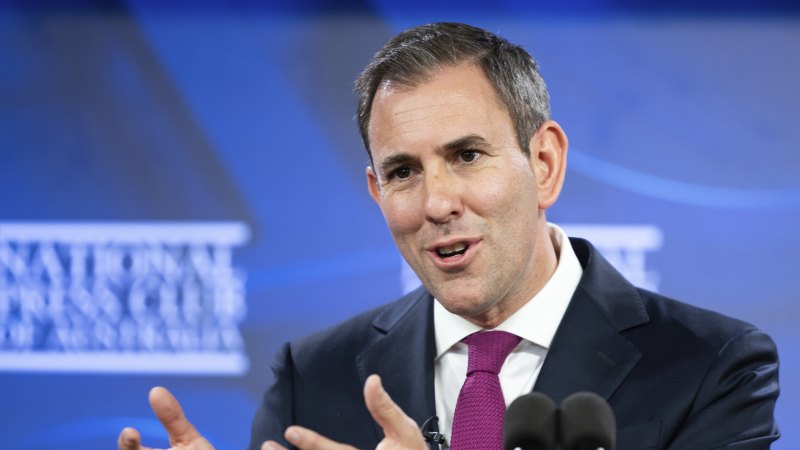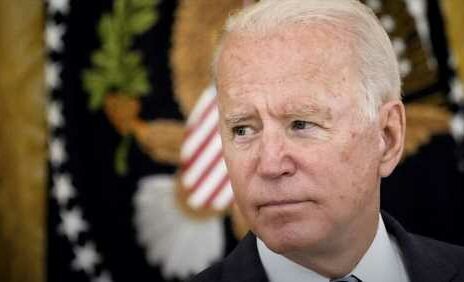Save articles for later
Add articles to your saved list and come back to them any time.
The lagged impact of the Reserve Bank’s sharp increase in interest rates and the slowdown hitting China are the biggest risks to the Australian economy, Treasurer Jim Chalmers has warned.
Ahead of key retail spending and monthly inflation figures, Chalmers said while he still expected the Australian economy to grow over coming months, the challenges to that growth were mounting.
Treasurer Jim Chalmers says the slowdown in China and lagged impact of higher interest rates are the biggest risks to the economy.Credit: Alex Ellinghausen
The Reserve Bank is tipping the economy to expand by just 0.9 per cent this year. At the start of the year, it was forecasting economic growth of 1.6 per cent. Financial markets and economists are now increasingly confident it has finished with tightening monetary policy.
Since then, concerns about China have grown, with Australia’s largest trade partner struggling to deal with an explosion in debt linked to its property and financial sector. There are also warning signs about the strength of the economy after consumer prices fell sharply over recent months.
Chalmers said while he did not think the problems in China would lead to a recession in Australia, the combination of China with the sharp lift in interest rates would weigh on the economy.
“A big risk to the outlook … (is) what’s happening in China and the way these interest rate rises are biting in our economy here at home,” he told Sky News.
“(I) expect the Australian economy to grow but some of these challenges are growing.
“Our economy is weakening as a consequence of what’s happening in the world and what’s happened with interest rates at the same time as inflation is moderating.”
Retail sales have tanked under the weight of higher interest rates and inflation. In the past quarter, in volume terms, they have fallen by 0.5 per cent. This week’s monthly inflation gauge is tipped by economists to show prices continuing to climb by 5.5 per cent.
Chalmers said the problems facing Chinese authorities were broad.
“In China, they’re dealing with slowing growth, they’ve got deflation, there are concerns in their property sector and to some extent in their banking sector. Their exports have slowed as well,” he said.
“We still expect … for the Australian economy to continue to grow but that growth will be substantially weaker.”
Opposition finance spokeswoman Jane Hume said the government was adding to the country’s challenges.
She said last week’s intergenerational report was full of dire warnings, but the government was not offering solutions.
Opposition finance spokeswoman Jane Hume says the government is being negative about the future.Credit: Alex Ellinghausen
“(There’s) this constant negativity about how the future is going to be disastrous, how costs are going to blow out, how taxes are going to be higher, how it’s going to be impossible for people to buy a home,” she said.
“How about we find the solutions to those problems, rather than just simply pointing to the fire without a bucket of water?”
Independent MP Allegra Spender said the tax system was adding to both the intergenerational issues hurting the country and the slowdown in productivity.
She said young people in particular were being let down by the tax system.
“Young people are doing it harder, they are having a harder time and our tax system is really driving into that,” she told ABC’s Insiders program.
“ Young people are feeling abandoned by the tax system, by the housing system, and I think the tax system has to play a part in addressing that.”
The Business Briefing newsletter delivers major stories, exclusive coverage and expert opinion. Sign up to get it every weekday morning.
Most Viewed in Politics
From our partners
Source: Read Full Article



